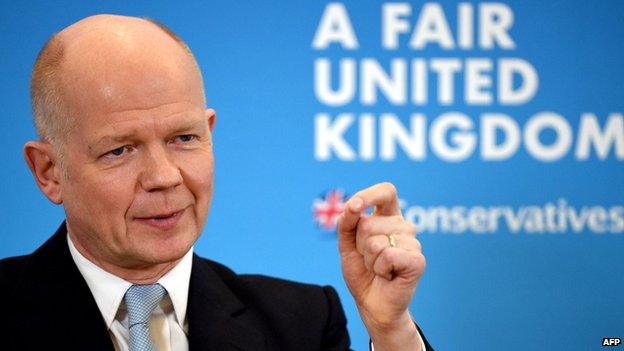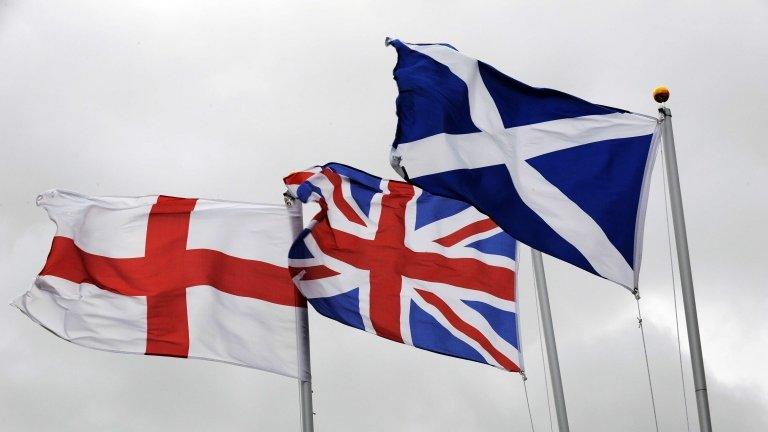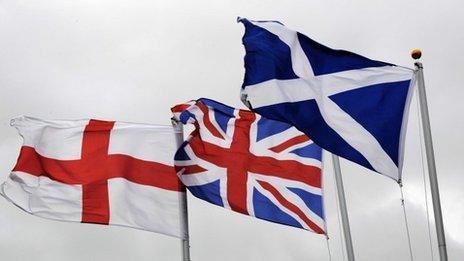Hague opts for the lesser of two EVELs
- Published

William Hague has chosen the lesser of two EVELs.
His version of this ghastly acronym would give English MPs control over the detail - and a veto over - English laws. But MPs from Scotland, Wales and Northern Ireland would still have a role debating and voting on English legislation.
For some Tory MPs this is not enough. They fear that Scottish MPs - including what could be a larger number of SNP MPs after the election - would still be able to frustrate English proposals.
English MPs were never going to be given total control over English law. That would have created a de facto English Parliament that many MPs believe would have left the United Kingdom unworkable.
David Cameron never had this in mind when he stood outside Downing Street last September and promised to listen to the voices of England.
While some constitutional purists on the Tory benches are feeling sore, others are content. They now have something to say on the doorstep about the so-called English issue.
Tory discipline
This is not a front rank issue.
Tories say that in some marginal constituencies, it is a matter of concern to a goodly number of voters. And crucially it is of concern to voters who tend to vote Tory but are disillusioned with the party, voters who feel uncomfortable over gay marriage and coalition with the Lib Dems, voters who are thinking of voting UKIP.
So this issue is as political as it is constitutional.
The Conservatives hope to pick up a few votes in England by leading from the front over EVEL.
They quite like winding up Labour by promising to curb their power base in Scotland, although the SNP might appear more of a threat to that right now. And the Tories like the idea of giving themselves some defensive cover against UKIP if the party finally decides that English nationalism is a tune they want to play.
The risk for the Tories is that they try to be too clever.
They hope to hold a symbolic vote in the Commons on this before the election so they can accuse Labour of playing "see no EVEL, hear no EVEL".
Some Tory MPs might be unable to resist putting their own amendments down. What was designed to embarrass Labour could end up highlighting Conservative divisions.
The question now is whether Tory discipline will hold.
- Published2 February 2015
- Published3 February 2015

- Published3 February 2015
